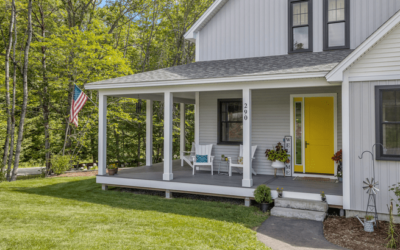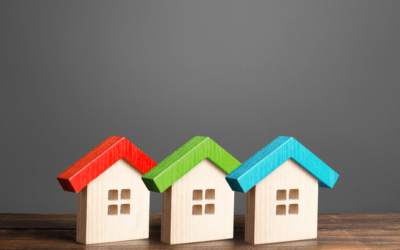
“The recent drop in rates means that 5.9 million people can potentially save money by refinancing their existing home loans and securing a lower rate.”
The average interest for 30-year fixed-rate mortgages is nearing 4 percent again, ushering the way for millions more homeowners to save money by refinancing.
The recent drop in rates means that 5.9 million people can potentially save money by refinancing their existing home loans and securing a lower rate — two million more than last month, according to a new report by Black Knight. The combined savings totals $1.6 billion, or an average of $271 per person per month.
The sharp drop in rates comes as a surprise, as most experts were betting that rates would be on the rise, says Mark Hamrick, Bankrate’s senior economic analyst. For borrowers, however, this is an unexpected gift.
“The fact that this swoon in rates has occurred as and when it has underscores the fact that accurately predicting the future of rates is difficult indeed. So, instead of trying to outsmart the market, go with what you know for certain which is where rates are right now,” Hamrick advises. “Between the pace of the news cycle and economic developments, the environment can change with release of a single presidential Tweet. In an uncertain environment, seize upon certainty where you can find it.”
Why your credit score, income and debt matter
Before you spend the time applying for a mortgage refinance, be sure you check your balance sheet and credit first. Applying for a refinance is similar to getting a mortgage in that lenders will consider your FICO score, debt-to-income ratio and employment history when evaluating your application. Your interest rate is a reflection of your financial situation and banks tend to reward low-risk customers with better rates.
Borrowers want to aim for a credit score of over 740 and a loan-to-value ratio of 75 percent or under to nail down the best rates, says Melissa Cohn, executive vice president at Family First Funding LLC in Toms River, New Jersey. The income needed for a loan is dependent on the bank’s qualifications; for self-employed borrowers, additional proof of income may be required to meet loan prerequisites.
Homeowners who have improved their credit score since getting their original mortgage should see if refinancing makes sense for them. For every 20-point increase in credit scores, the interest drops about 0.125 percent. So, if someone had a 680 credit score and now has above a 760, this alone will improve their rate by about 0.5 percent, says Daniel M. Shlufman, Esq., mortgage banker at Classic Mortgage LLC in Maywood, New Jersey.
For folks who are hoping to lock in a better rate but are not currently financially ready to do so, create a financial game plan now for a better position down the road. This includes paying down debt and saving money for an emergency fund (so that credit cards are not the go-to in a pinch).
“Anyone who has owned a home for a modest period of time can attest that unexpected expenses are the rule, not the exception. In addition, life brings its own surprises and added expenses,” Hamrick says. “For young families, that might include the birth of a child and related added expenses. By boosting your own finances, effectively paying yourself, you’ll also be boosting your creditworthiness which can only help one achieve financial goals overall.”
The best scenarios for refinancing
Falling rates might seem like a money windfall if you have a higher interest rate than what’s available today, but make sure refinancing bolsters your bottom line. Expensive lender fees can actually put you in the red if you decide to refinance and the savings don’t outweigh the expense
Generally, you need a drop in the rates of 0.5 to 1 percent (depending on the monthly savings and the closing costs) to justify doing a refinance, Shlufman notes. The rule of thumb is that the savings should be enough to recoup the closing costs within about 18 months to make a refinance justifiable.
“If the closing costs are $3,600, you would need a savings of about $200 per month on the mortgage payment for a refinance to be worthwhile,” Shlufman says. “The larger the loan, the more likely a refinance will make sense since most of the closing costs are fixed (e.g., appraisal fee, recording fees, etc.) while the monthly savings will be much greater.”
If you’re paying PMI, pay attention
Refinancing also makes sense is if you have private mortgage insurance, or PMI, and the house value has increased so that there is equity of at least 20 percent. Refinancing into a lower rate not only shaves off interest costs but also knocks out monthly PMI payments, which are typically 0.5 to 1 percent of the total loan on a yearly basis. For borrowers with a $200,000 mortgage and a PMI payment of 1 percent, for instance, that’s a savings of $2,000 per year or $167 per month.
FHA loan borrowers are another group that can potentially benefit from refinancing into a conventional loan. Since PMI is more expensive on FHA loans, those qualified borrowers might save a small mint by reducing or eliminating their FHA PMI and locking in a lower rate, Shlufman says.
Those who want to reduce their terms and go from a 30-year fixed-rate mortgage to a 15-year loan, might be able to ax an additional 0.5 percent from the top since since 15-year loans usually have lower rates. That might also mean larger monthly payments, but overall less interest paid over the life of the loan. Adjustable-rate mortgage holders can also profit from dropping rates; the timing might be right to lock via a fixed-rate mortgage as rates continue to hover around the 4-percent mark.
Finally, folks hoping to tap their equity while reducing their interest rate can take advantage of cash-out refinances. These are low-interest loans that allow homeowners to borrow against their equity by replacing their existing mortgage with a new loan for a higher amount and receiving the balance in cash. These can be useful for people who want to make home improvements as the interest is tax-deductible.
Learn more:
- Here’s how much money you’ll save shopping for a mortgage with multiple lenders
- How cash-out refinancing works
- Calculator: How much house can I afford?
To view original article, visit Bankrate.
Real Estate Still Holds the Title of Best Long-Term Investment
Homeownership has long been tied to building wealth—and for good reason.
What To Do When Your House Didn’t Sell
If you want an expert’s advice on why your home didn’t sell, rely on a trusted real estate agent.
Do Elections Impact the Housing Market?
While Presidential elections do have some impact on the housing market, the effects are usually small and temporary. For help navigating the market, election year or not, let’s connect.
How Long Will It Take To Sell My House?
You may be wondering how long the whole process is going to take. One way to get your answer? Work with a local real estate agent.
Housing Market Forecast: What’s Ahead for the 2nd Half of 2024
Here’s what experts say you should expect for home prices, mortgage rates, and home sales.
Why a Vacation Home Is the Ultimate Summer Upgrade
If you’re excited about getting away and having some fun in the sun, it might make sense to own your own vacation home.







.jpg )



